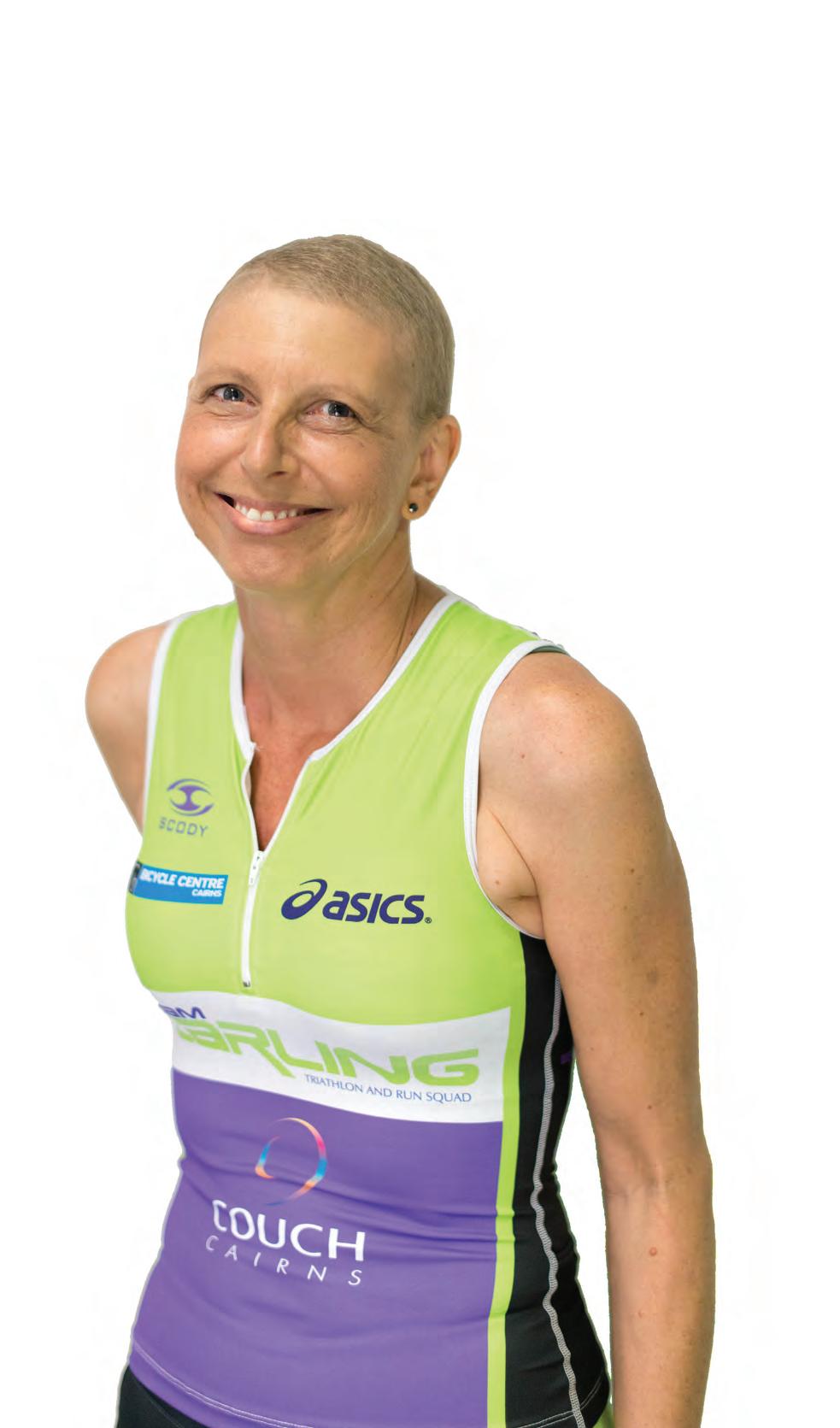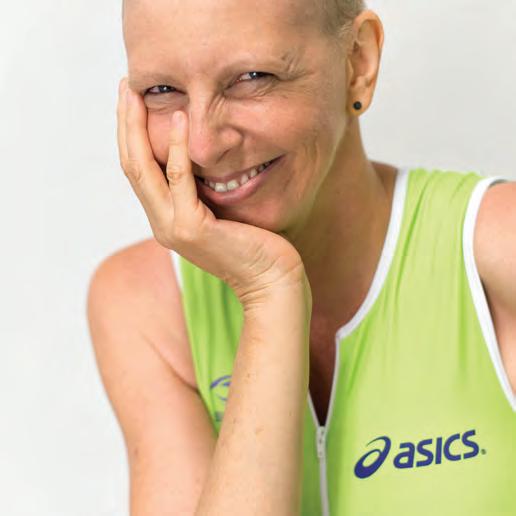
4 minute read
Nicky Roberts : WHY WE TRI
Nicky Roberts, 47, wife, mother , mental health nurse, breast cancer survivor.
“I was 44 years old when I first had a breast check. I’d always been healthy, and with work and family and life – well, these things get pushed back.
Advertisement
On December 17, 2014, a tumour was detected. I was told it was cancerous.
It wasn’t a particularly fun Christmas. I had two lumpectomies and 20 rounds of radiation. However, a post surgery check revealed the prognosis was excellent, and I just got on with life.
In June 2016, I had a followup ultrasound. While there, the radiologist checked my other breast and found an area of concern.
I had a biopsy on the spot, and received a call the next night to say they had discovered cancer in the second breast.
I decided on double mastectomy.
It was six weeks between re-diagnosis and surgery, partly because the lengthy waiting list for surgery and partly because I was arranging a breast reconstruction to happen at the same time.
Waiting, not knowing if the cancer had spread, was awful.
During surgery, a 5cm tumor was detected – practically the whole of my breast! It had spread to the lymph nodes, so I went back to have a full lymph clearance, at which point they discovered the cancer had truly spread.

Why We Tri |Nicky Roberts
www.oasismagazine.com.au
I discovered triathlons purely by chance five years ago, before breast cancer. I’d never been a sporty person, and I’d just started jogging around the block. Getting to 5km was huge for me!
I saw the end of the full Ironman Triathlon on the Cairns Esplanade and someone told me about the distances the competitors had completed. I was amazed and inspired and decided on the spot that I wanted to do a triathlon!
The following year I signed up for the Enticer distance at the Coral Coast Triathlon.
I trained on my own; I didn’t dare go to squad training. I was too embarrassed about my lack of fitness and skill. I read books on how to race. I bought a bike off Gumtree for $180 – it was a horrid, bright mustard yellow. I put it in for a service and when I collected it, they laughed and told me it was the heaviest race bike they’d ever had!

Why We Tri |Nicky Roberts
www.oasismagazine.com.au
I practiced all my transitions by myself; I’d ride down to the beach, swim the exact distance in the stinger net and ride my bike home, then off I’d go on a run. I came second place in my very first triathlon. And I was hooked.
I managed to train and race through both lots of diagnoses and treatments, after my initial diagnosis I was still able to complete the Cairns Half Ironman.
I’m hoping to do the same this year, despite much more difficult treatments: more surgery, and five months of chemotherapy and radiation, which I’m still receiving.
When you start exercising, motivation can be tough because you’re not necessarily feeling the benefits. Eventually you get to a tipping point where training just feels good it becomes as natural as cleaning your teeth.
People say ‘you’re so amazing to still be doing this’, but to me I couldn’t imagine anything else.
In the days following my mastectomy, I walked 42km.
Some of the nurses weren’t happy about that, but my fantastic surgeons supported my need to move and being active defini ely helped my recovery.
My coping mechanism is to ask myself ‘what’s the worst that can happen?’
There’s plenty of medical evidence that mental strategies affect the way the body responds, and that stress can be managed through positive thinking.
My motto is to prepare for the worst and hope for the best – it may be a cliché, but it’s so true.
How do I prepare for the worst? I do lots of memory making with the family. I take lots more photos, especially with me in it – I want my children to have a record of me.
And we treat my cancer as a chronic illness that is managed by a healthy lifestyle and medical treatment.
I’m a mental health nurse and that training has served me well. This has helped building my resilience. When things gets dark for me, all I need to do is switch on the news and see the Syrian refugees and I think how different, difficult and deeply sad their situations are.
I’m the fortunate one.

Why We Tri |Nicky Roberts
www.oasismagazine.com.au
So, despite the cancer diagnoses and the physical and mental difficulties of treatment, I still so very feel fortunate.
Following a battle with infertility, I was blessed with two incredible children. Infertility is a huge burden for so many women. Facing the potential of not having children was far more difficult than this.
My children are my legacy. And I am so honoured to have a fantastic, and loving husband. He’s such a lovely man and a good father, and he copes so well with the nightmare of cancer in the family.
I have a wonderful and supportive family at home in England and Ireland and I have access to some of the best healthcare in the world. I have a job that I love and a supportive employer. I really do have so much to be grateful for!
And whilst this sounds very controlled, I know it’s likely that I will crash at some point - probably after the end of the 70.3 race in June!
But when that happens, I’ll accept my feelings, have a rest, then pick myself up and carry on!
But for now, there’s a race to be run.”
Team COUCH (Committee for the Oncology Unit for Cairns Hospital) is the official charity of the 2017 Cairns IronMAN. Please help Nicky reach her fundraising goals by searching COUCH at EverydayHero.com






